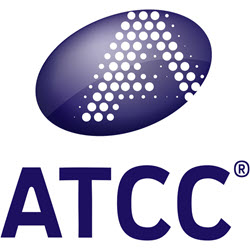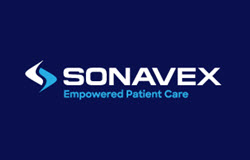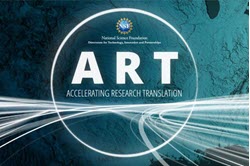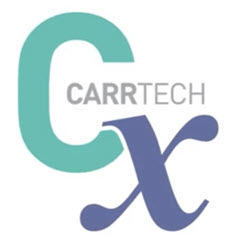
 ROCKVILLE, Md., Jan. 4, 2024 /PRNewswire/ — MaximBio, a leading Maryland-based manufacturer specializing in lateral flow and diagnostic devices, is announcing the receipt of a $49.5 million award from the U.S. Department of Health and Human Services (HHS) through the Administration for Strategic Preparedness and Response (ASPR). This funding is designated to fortify the domestic manufacturing capabilities for diagnostic tests and enhance preparedness for potential future pandemics. The award is part of a broader initiative awarding $600 million to 12 domestic COVID-19 test manufacturers.
ROCKVILLE, Md., Jan. 4, 2024 /PRNewswire/ — MaximBio, a leading Maryland-based manufacturer specializing in lateral flow and diagnostic devices, is announcing the receipt of a $49.5 million award from the U.S. Department of Health and Human Services (HHS) through the Administration for Strategic Preparedness and Response (ASPR). This funding is designated to fortify the domestic manufacturing capabilities for diagnostic tests and enhance preparedness for potential future pandemics. The award is part of a broader initiative awarding $600 million to 12 domestic COVID-19 test manufacturers.

 Project NextGen is a $5 billion initiative to develop next-generation medical countermeasures, including vaccines and therapeutics, to enhance preparedness for future COVID-19 strains and variants.
Project NextGen is a $5 billion initiative to develop next-generation medical countermeasures, including vaccines and therapeutics, to enhance preparedness for future COVID-19 strains and variants.
MANASSAS, Va.–(BUSINESS WIRE)–ATCC, the world’s premier biological materials management and standards organization, today announced a five-year, $87 million award from the Biomedical Advanced Research and Development Authority (BARDA), part of the Administration for Strategic Preparedness and Response within the U.S. Department of Health and Human Services, to support the development of next-generation medical countermeasures (MCMs) to protect Americans from public health security threats such as coronaviruses.
Through Project NextGen, BARDA is collaborating with the National Institute of Allergy and Infectious Diseases (NIAID), as well as the private sector, to enable decreased cost, accelerated production, increased efficacy and improved access, strengthen a diverse pipeline of next-generation, innovative vaccines through clinical trials, and support the development of next-generation therapeutics. ATCC will provide cold-chain and lifecycle management of biological specimens from Project NextGen clinical studies.
“
 Lion TCR to use MaxCyte’s Flow Electroporation® technology and ExPERT™ platform to develop and scale TCR-T cell therapies for solid tumors and viral-related diseases.
Lion TCR to use MaxCyte’s Flow Electroporation® technology and ExPERT™ platform to develop and scale TCR-T cell therapies for solid tumors and viral-related diseases.
ROCKVILLE, Md. and SINGAPORE, Jan. 03, 2024 (GLOBE NEWSWIRE) — MaxCyte, Inc., (Nasdaq: MXCT; LSE: MXCT), a leading, cell-engineering focused company providing enabling platform technologies to advance the discovery, development and commercialization of next-generation cell therapeutics and innovative bioprocessing applications, and Lion TCR, an Asia-based, clinical-stage biotechnology company focused on the development of T cell receptor (TCR)-T cell therapies for solid tumors and life-threatening viral infections today announced the signing of a strategic platform license (SPL). This partnership will enhance MaxCyte’s presence in Asia, with anticipated expansion into the US and European markets.

 ROCKVILLE, Md.–(BUSINESS WIRE)–GlycoMimetics, Inc. (Nasdaq: GLYC), a late clinical-stage biotechnology company discovering and developing glycobiology-based therapies for cancers and inflammatory diseases, today announced positive initial safety, tolerability, and pharmacokinetic results from a Phase 1a study of GMI-1687 in healthy volunteers.
ROCKVILLE, Md.–(BUSINESS WIRE)–GlycoMimetics, Inc. (Nasdaq: GLYC), a late clinical-stage biotechnology company discovering and developing glycobiology-based therapies for cancers and inflammatory diseases, today announced positive initial safety, tolerability, and pharmacokinetic results from a Phase 1a study of GMI-1687 in healthy volunteers.
“These positive results represent an important milestone in the development of GMI-1687 as a potential point-of-care treatment option intended to help people living with sickle cell disease when they need it most, at the onset of pain crises,” said Harout Semerjian, Chief Executive Officer of GlycoMimetics. “Our Phase 1a data confirm this highly potent, second-generation E-selectin antagonist has an excellent profile for further development, with no dose-limiting toxicities or safety signals observed along with linear pharmacokinetics. We look forward to completing analysis of the study and advancing partner and financing discussions that support further development of this potentially important new therapeutic option for SCD.”

 There’s a lot of talk about artificial intelligence, or AI, these days. AI is everywhere—from virtual assistants to facial recognition software. The technology is even assisting doctors and scientists. So what exactly is AI? And how is it helping advance scientific research?
There’s a lot of talk about artificial intelligence, or AI, these days. AI is everywhere—from virtual assistants to facial recognition software. The technology is even assisting doctors and scientists. So what exactly is AI? And how is it helping advance scientific research?
“AI is basically trying to teach computers to ‘think’ in the same way as the human brain,” says Dr. Despina Kontos, an AI researcher at Columbia University.
One approach to AI uses a process called machine learning. In machine learning, a computer model is built to predict what may happen in the real world. The model is taught to analyze and recognize patterns in a data set. This training enables the model to then make predictions about new data. Some AI programs can also teach themselves to ask new questions and make novel connections between pieces of information.

 Maryland biotechnology company promotes improved patient outcomes for infants with body deformities
Maryland biotechnology company promotes improved patient outcomes for infants with body deformities
COLUMBIA, Md. (January 3, 2024) – TEDCO, Maryland’s economic engine for technology companies, announced a recent $200,000 investment from its Life Science Investment Fund (LSIF) into PediaMetrix, a biotechnology company working to detect body deformities in infants and improve patient outcomes. TEDCO’s LSIF lives under the Seed Funds umbrella and invests in companies that have a Federal Drug Administration (FDA) pathway. Participating in this round were also Blu Ventures, as well as a pediatrician.

 FDA IDE approval of Sonavex’s randomized trial comes months after meeting the endpoint of its first clinical study
FDA IDE approval of Sonavex’s randomized trial comes months after meeting the endpoint of its first clinical study
BALTIMORE, Jan. 2, 2024 /PRNewswire-PRWeb/ — Sonavex, Inc., a privately held medical device company with ultrasound technologies that deliver quantitative blood flow and other critical vascular data at the point of care, announced that it completed its initial clinical study evaluating the ability to use EchoMark & EchoSure to improve the assessment of arteriovenous (AV) fistula maturation for dialysis patients. Following the positive findings from this study, Sonavex was granted approval from the U.S. Food and Drug Administration under an Investigational Device Exemption (IDE) for its randomized controlled trial, MAFASA (Maturation of Arteriovenous Fistula with Automated Sonography Assessments).

 The U.S. National Science Foundation today announced the first-ever Accelerating Research Translation (ART) investment — more than $100 million to 18 teams at academic institutions across the nation. NSF’s investment will enable academic institutions to accelerate the pace and scale of translational research that will grow the nation’s economy.
The U.S. National Science Foundation today announced the first-ever Accelerating Research Translation (ART) investment — more than $100 million to 18 teams at academic institutions across the nation. NSF’s investment will enable academic institutions to accelerate the pace and scale of translational research that will grow the nation’s economy.
“NSF endeavors to empower academic institutions to build the pathways and structures needed to speed and scale their research into products and services that benefit the nation,” said NSF Director Sethuraman Panchanathan. “The Accelerating Research Translation program in NSF’s new Technology, Innovation and Partnerships (TIP) Directorate identifies, and champions institutions positioned to expand their research translation capacity by investing in activities essential to move results to practice.”

 In this episode of BioTalk with Rich Bendis, we’re joined by three guests from Solaxa: CEO & Founder Christian Walker, Chief Operating Officer Luis T. Gutierrez, Jr., and Chief Commercial Officer Jennifer Butler. Solaxa is a pioneering biotech company with a mission to revolutionize the treatment of cerebellar ataxias and acute nerve injuries caused by trauma and chemotherapy.
In this episode of BioTalk with Rich Bendis, we’re joined by three guests from Solaxa: CEO & Founder Christian Walker, Chief Operating Officer Luis T. Gutierrez, Jr., and Chief Commercial Officer Jennifer Butler. Solaxa is a pioneering biotech company with a mission to revolutionize the treatment of cerebellar ataxias and acute nerve injuries caused by trauma and chemotherapy.
Discover the compelling story behind Solaxa’s choice to establish its roots in Montgomery County and how the BioHealth Capital Region has played a crucial role in its growth. Learn how Solaxa’s team was assembled, including the inspiring success stories of Luis and Jennifer, both part of the BioHealth Innovation and Montgomery County Maryland’s Executive in Residence program.
Listen now via your favorite podcast platforms:
Apple: https://apple.co/3S3mDVJ
Google: https://bit.ly/3RJFZ0n
Spotify: https://spoti.fi/3RY4rwt
Amazon Music: https://amzn.to/3NMllvM
TuneIn: https://bit.ly/3NOtq2W

 Sue Carr clearly remembers the moment that pushed her to become a full-time entrepreneur.
Sue Carr clearly remembers the moment that pushed her to become a full-time entrepreneur.
In 2018, Carr was working at a hospital in Montgomery County and responding to a critical situation in the emergency room. She had to administer life-saving medication that was packaged in a glass ampoule — a small glass vial with a bottle head — to a patient.
To open the ampoule, the bottle head must be broken off, which Carr said results in glass shards getting in medication.
